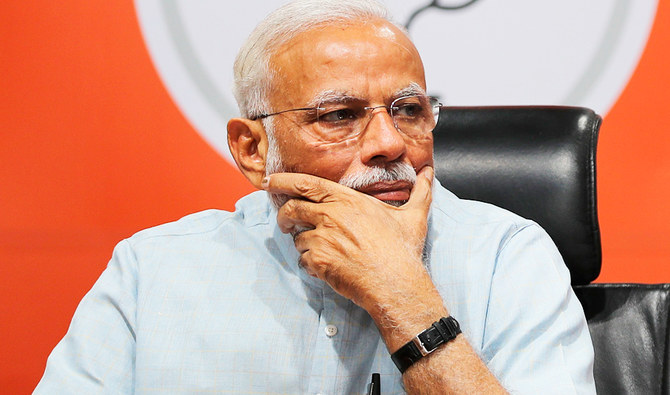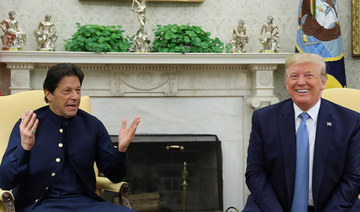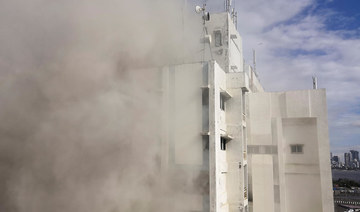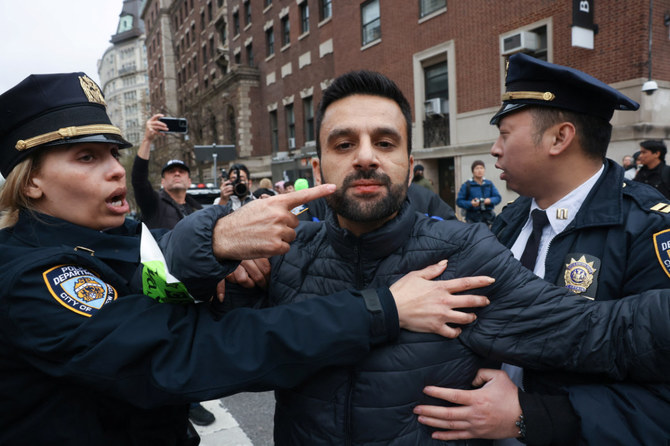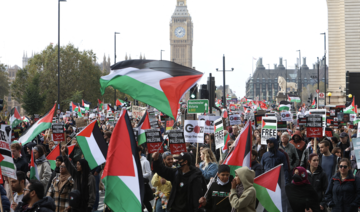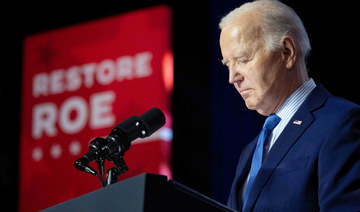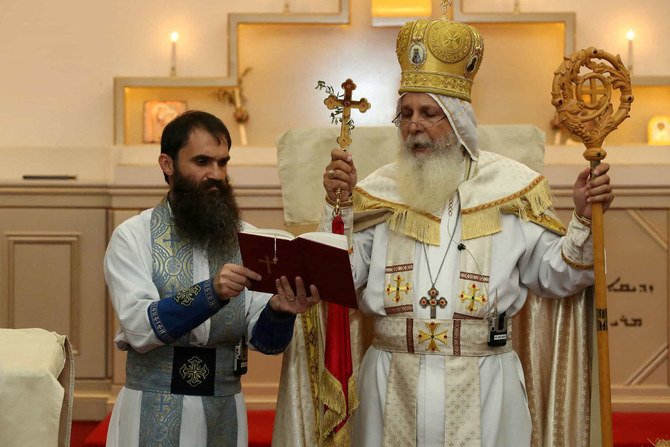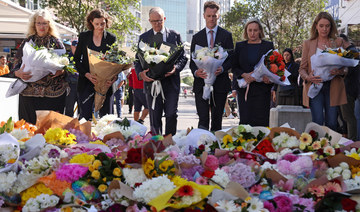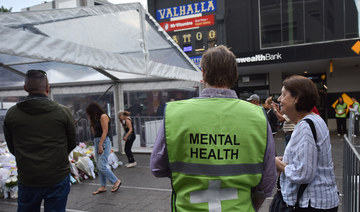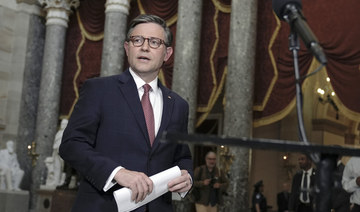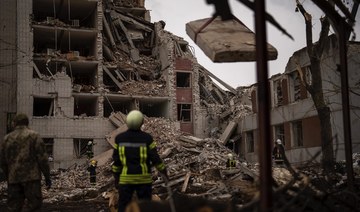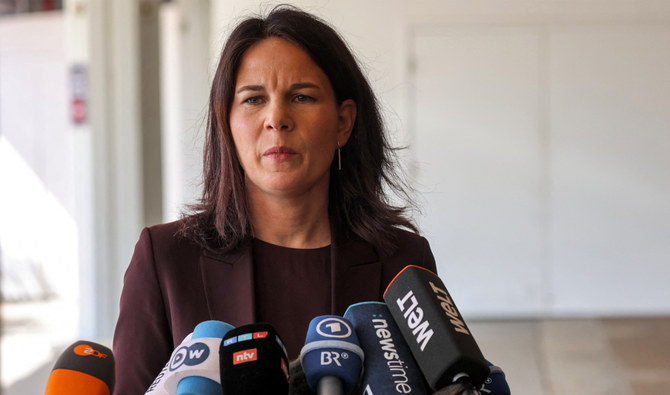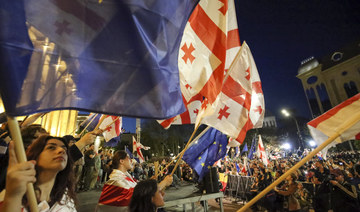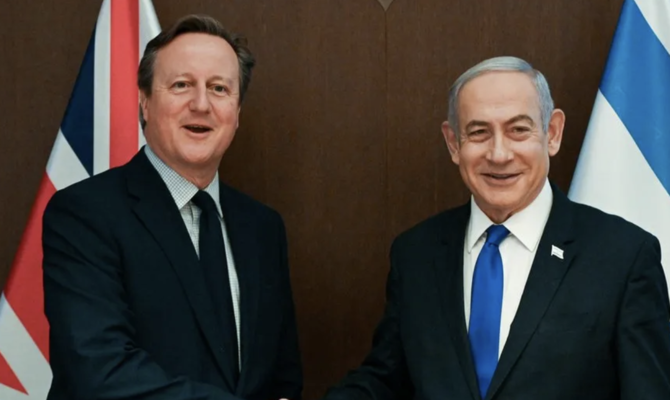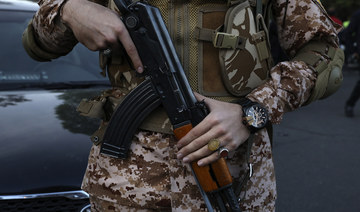NEW DELHI: Indian government opposition members on Tuesday stormed out of Parliament after a heated session over claims by US President Donald Trump that he had been asked by Prime Minister Narendra Modi to mediate over the Kashmir dispute with Pakistan.
Despite a statement from Minister of External Affairs Subrahmanyam Jaishankar denying the premier’s arbitration request, members demanded Modi appear in person to clarify the situation.
However, mainstream political parties and separatist leaders in Kashmir later welcomed the suggestion of mediation by the US as the only way to put out the “raging fires of hatred” that for years had engulfed the disputed territory.
Denying the claim in Parliament, Jaishankar said: “I would like to put it on record in the house that no such request (on Kashmir) was made by the prime minister to the president of the United States. All issues with Pakistan have and will remain bilateral between India and Pakistan.”
But leader of the main opposition Congress party, Rahul Gandhi, tweeted: “A weak foreign ministry denial won’t do. (The) PM must tell the nation what transpired in the meeting between him and (the) US president.”
He added that if Trump’s claims were found to be true, Modi had “betrayed India’s interests and the 1972 Shimla Agreement (a peace treaty between India and Pakistan).”
Leader of the Congress party in the upper house of the Indian Parliament, Anand Sharma, demanded that Modi “must” explain himself after Trump had reportedly told Pakistani Prime Minister Imran Khan about the Indian PM’s mediation plea.
Opposition members shouted, “PM come to the house” and “PM must reply” before staging a walkout in both houses of Parliament.
Speaking to media in Washington on Monday, with Khan by his side, Trump said: “I was with prime minister Modi two weeks ago. We talked about this subject (Kashmir). He actually said, ‘would you like to be a mediator or arbitrator?’ I said, ‘Where?’ He said, ‘Kashmir’.... I think they’d like to see it resolved. And I think you’d like to see it resolved. And, if I can help, I would love to be a mediator.”
Trump added: “I think they would like to see it resolved. I think you would like to see it resolved and if I can help, I would like to see it resolved and if I can help, I would love to be a mediator. It is impossible to believe that two incredible countries that are very smart and have very smart leadership can’t resolve it, but if you want me to mediate or arbitrate, I would be willing to do it.”
In a press statement on Tuesday the US State Department said that “while Kashmir is a bilateral issue, the Trump administration welcomes Pakistan and India sitting down and the US stands ready to assist.”
Both India and Pakistan claim Kashmir and they have fought three wars on the issue. In February this year they were on the verge of another war after a terror attack in Pulwama district killed more than 50 members of Indian paramilitary forces. International intervention is believed to have played a major role in diffusing tensions between the neighbors.
India and Pakistan have not held any formal bilateral talks on the subject of Kashmir for more than five years.
Meanwhile, mainstream political parties and separatist leaders in Kashmir have welcomed talk of mediation by the US.
“It is a matter of happiness that when PM Modi talked to Trump he had told him that the Kashmir issue is complex and if there can be some help it would be good,” said Farooq Abdullah, the former chief minister of Jammu and Kashmir and leader of the National Conference, a predominant group in the valley.
“I congratulate Modi. He too wants to use everything to solve this issue that is creating tensions between India and Pakistan,” Abdullah added.
The People’s Democratic Party (PDP), the outgoing ruling party of Kashmir which was a coalition partner of the ruling Bharatiya Janata Party (BJP) in Srinagar for two years until June last year, “welcomed the positive development laden with potential to establish permanent peace in the subcontinent.”
In a statement the party added: “Dialogue and diplomacy, not warmongering, are the only means which can deliver some respite to the people of a subcontinent engulfed in raging fires of hatred.”
Kashmir-based separatist group All Parties Hurriyat Conference (APHC) said that “every effort and push” in the resolution of the Kashmir dispute was welcome.
“The US and all other nations can play a role in asking both the neighbors to talk and resolve the festering Kashmir conflict once for all. It will put an end to decades-long political uncertainty, perpetual strife and endless pain and miseries for the people of this ill-fated region,” Hurriyat added in a statement.
Political analyst Prof. Sheikh Showkat Hussain, of Kashmir University, said that mediation was the only solution. “Both the countries were supposed to settle the dispute bilaterally through the Shimla Agreement, but they have failed to do it. Therefore, there is scope for third-party mediation, and I believe Modi has sought that intervention.”
He added: “The way things are unfolding in Afghanistan with the Americans on retreat, if the Western forces leave Afghanistan and the Kashmir issue remains unresolved, then for the non-state actors the center of attention would be the valley.
“I feel that Modi might have approached Trump in that context. He wants to resolve the issue before the Americans leave Afghanistan,” Hussain told Arab News.
Valley-based human rights activist, Khurram Parvez, said the “international community has an important role to play in resolving the issue in Kashmir.”
He told Arab News: “Bilaterally it will be impossible for them to resolve it unless there is international support and persuasion. Bilateral mechanisms have failed. Most conflicts in the world have been solved by international intervention.”



